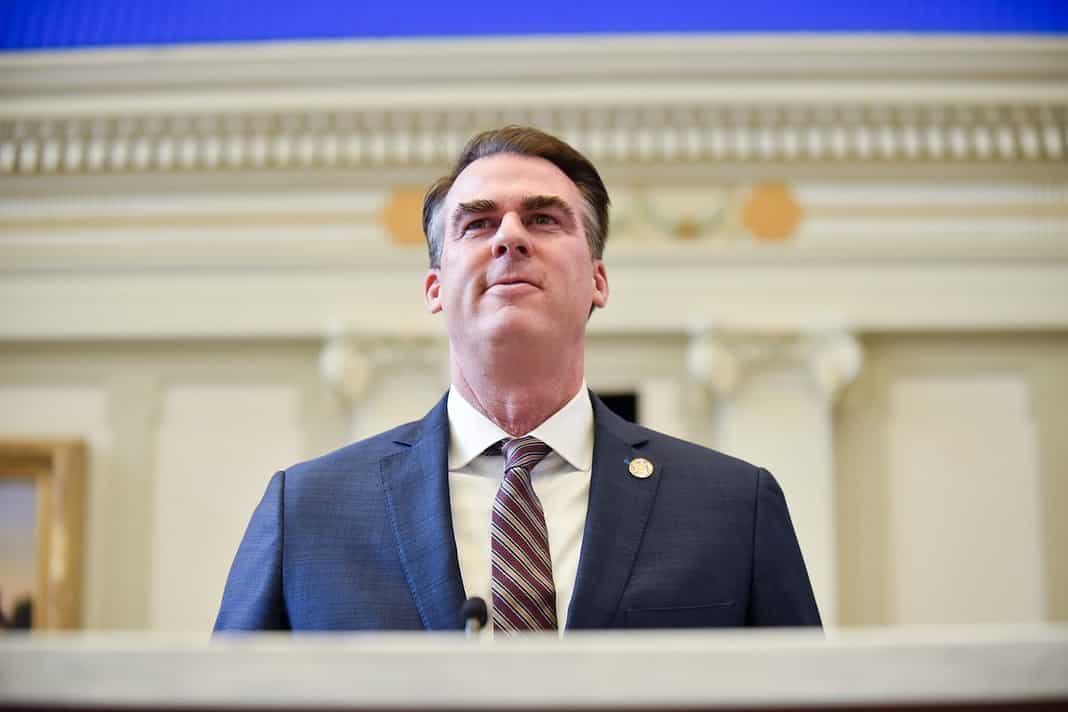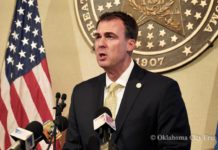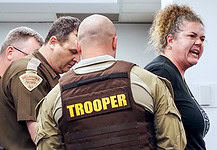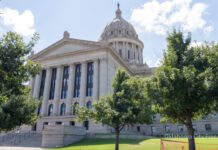Last Updated on February 5, 2024, 5:44 PM | Published: February 5, 2024
OKLAHOMA CITY – Gov. Kevin Stitt on Monday told lawmakers that he would sign any tax cut that comes to his desk.
“Because as we have growth, it should be automatic to return excess to the taxpayers, not to seek out bigger government programs,” Stitt said.
Stitt outlined his legislative priorities in a 41-minute address before a joint legislative session in the House chamber. It was his sixth State of the State address.
“In the 1990s, we were at 7% income tax,” Stitt said. “So, I’m renewing my call. Let’s get Oklahoma back on the path to zero.”
The Senate has resisted efforts to reduce the state’s 4.75% income tax rate. Stitt on three occasions has called lawmakers into special session to address tax cuts.
Those special sessions failed to produce anything, although the Oklahoma House is supportive of tax cuts.
Increasing taxes takes a super majority in both chambers.
Stitt said he wants a flat budget for state agencies this year, but was not calling for cutting core services.
He also called for more charter schools and schools that focus on career training and not just college readiness.
“Let’s put some of these vacant school facilities to use and get more high performing charter schools up and running, especially in areas with failing public schools,” Stitt said. “More schools, more innovation, more freedom.”
Stitt told lawmakers to send him legislation that incentivizes higher education institutions that fulfill the state’s workforce needs.
“I also want our regents to focus on consolidating colleges and universities that aren’t meeting this standard,” Stitt said.
The state needs to stop subsidizing colleges and universities with low enrollment and graduation rates, he said.
“It’s crazy to me that somebody can be pulled over and have their cash and truck taken for an alleged crime, get acquitted of that crime, but they still never get their property back.”
Oklahoma Gov. Kevin Stitt, State of the State speech 2024
In the area of public safety, Stitt said he wants to limit fines, fees and court costs to only what is needed for restitution.
He also wants to crack down on civil asset forfeiture.
“It’s crazy to me that somebody can be pulled over and have their cash and truck taken for an alleged crime, get acquitted of that crime, but they still never get their property back,” Stitt said. “That isn’t fair and we need to make sure it isn’t happening anywhere in Oklahoma.”
Proceeds from civil asset forfeiture go to fund law enforcement.
Stitt’s address was punctuated by scripture and quoted Ronald Reagan.
He spoke of hope and the need for strong families.
He called on government officials to serve God by acting righteously and serving without partiality.
He said graduating from high school, getting a job and getting married before having kids are “a surefire way to keep families out of poverty.”
House Minority Leader Cyndi Munson, D-Oklahoma City, said income tax cuts disproportionately benefit wealthy Oklahomans. She also expressed concerns that cutting taxes could lead to reductions in state services in an economic downturn.
Outside of the House chamber, dozens of protesters chanted “Cease fire now” in reference to the bloodshed in Gaza and Israel that has killed over 27,000.
Republished in partnership with Oklahoma Voice under Creative Commons license CC BY-NC-ND 4.0. Oklahoma Voice is a part of States Newsroom which is a nonprofit news network supported by grants and a coalition of donors as a 501c(3) public charity. Oklahoma Voice maintains editorial independence. Contact Editor Janelle Stecklein for questions: [email protected]. Follow Oklahoma Voice on Facebook and Twitter.

Barbara Hoberock is a senior reporter with Oklahoma Voice. She has covered the statehouse since 1994 and served as Tulsa World Capitol Bureau chief. Hoberock covers statewide elected officials, the legislature, agencies, state issues, appellate courts and elections.











